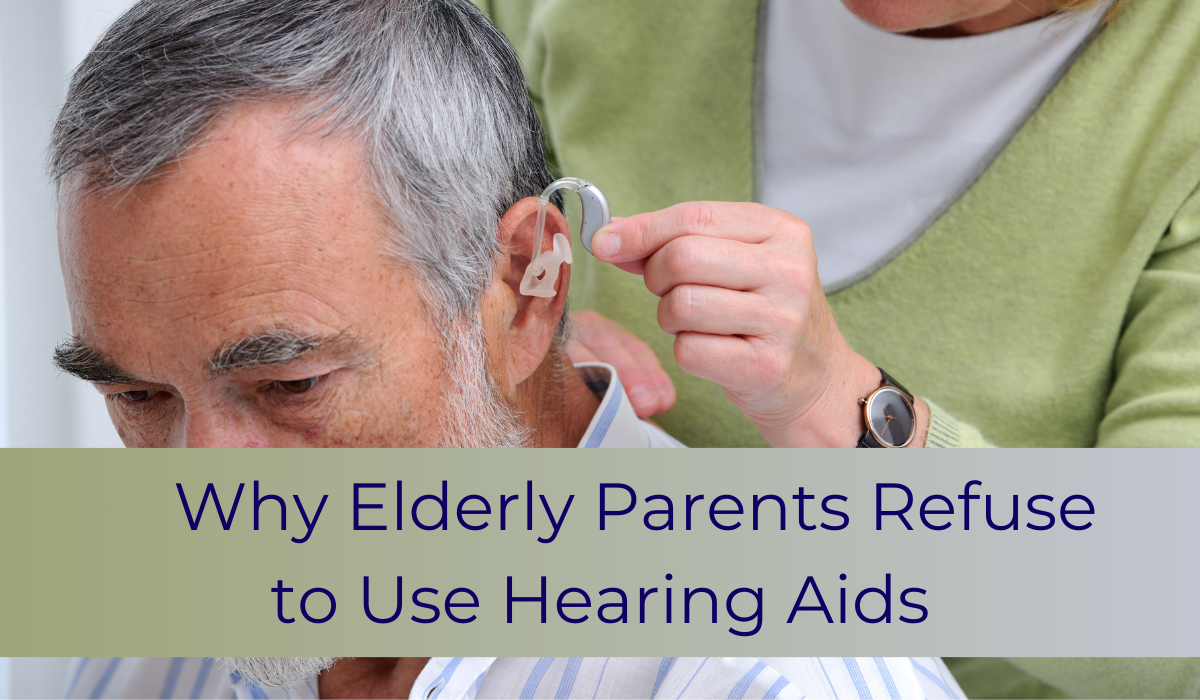As we age, our bodies undergo numerous changes, and one common issue that many elderly individuals face is hearing loss. Despite the availability of hearing aids, a significant portion of the elderly population refuses to use them. This refusal often perplexes loved ones and caregivers, leading to frustration and misunderstanding.
In this article, we will explore the reasons behind this resistance, shedding light on the complex factors that influence elderly parents' decisions regarding hearing aids.
Stigma Surrounding Hearing Loss
One prominent reason why elderly parents may resist using hearing aids is the stigma associated with hearing loss. In our society, there is often a negative perception surrounding hearing impairment, with some individuals equating it to a loss of independence or a sign of aging. As a result, elderly parents may feel embarrassed or self-conscious about wearing hearing aids, fearing that it will draw attention to their condition and invite judgment from others.
Unrealistic Expectations
Another factor that contributes to resistance towards hearing aids is unrealistic expectations. Some elderly individuals may have misconceptions about what hearing aids can and cannot do. They may expect these devices to restore their hearing to its youthful state or eliminate all communication difficulties entirely. When the reality falls short of these expectations, they may become disillusioned and reluctant to continue using hearing aids.
Denial and Acceptance
Denial is a common coping mechanism among individuals facing hearing loss, particularly in the elderly population. Rather than acknowledging their hearing difficulties, some elderly parents may deny or downplay the severity of their condition. Accepting the need for hearing aids can be emotionally challenging, as it requires confronting the reality of aging and potential limitations. This reluctance to accept their hearing loss can hinder their willingness to seek help and use hearing aids.
Practical Barriers
Practical barriers also play a significant role in elderly parents' resistance to using hearing aids. These barriers may include financial constraints, difficulty adjusting to the technology, or concerns about maintenance and upkeep. For some elderly individuals, the prospect of navigating the complexities of hearing aid usage may seem overwhelming, leading them to avoid seeking assistance altogether.
Lack of Education and Support
A lack of education and support regarding hearing loss and hearing aids can further contribute to resistance among elderly parents. Without adequate information about the benefits of hearing aids and how to properly use them, individuals may be hesitant to pursue treatment options. Additionally, limited support from healthcare providers, family members, or peers may exacerbate feelings of isolation and frustration, reinforcing their decision to forgo hearing aids.
Conclusion
Understanding why elderly parents refuse to use hearing aids requires consideration of a multitude of factors, including social stigma, unrealistic expectations, denial, practical barriers, and the availability of education and support. By addressing these barriers with empathy and patience, loved ones and caregivers can help empower elderly individuals to make informed decisions about their hearing health and improve their quality of life. It is essential to encourage acceptance and adoption of hearing aids as a valuable tool for enhancing auditory function and overall well-being.
We invite you to share your thoughts and experiences in the comments section below. Have you encountered challenges in convincing elderly loved ones to use hearing aids? What strategies have you found effective in addressing their concerns? Your insights can spark meaningful discussions and provide valuable support to others facing similar situations.
Free eBook:
Top 10 Daily Tasks For The Elderly Family Caregiver
 Dive into the world of compassionate caregiving as we guide you through maintaining a structured routine with our practical checklist.
Dive into the world of compassionate caregiving as we guide you through maintaining a structured routine with our practical checklist.
Prioritize your loved one's well-being with the help of this resource. Don't miss out on the opportunity to download your FREE copy now of the Top 10 Daily Tasks For The Elderly Family Caregiver.
Learn how to create a nurturing environment. Unlock the potential of organized caregiving today!

